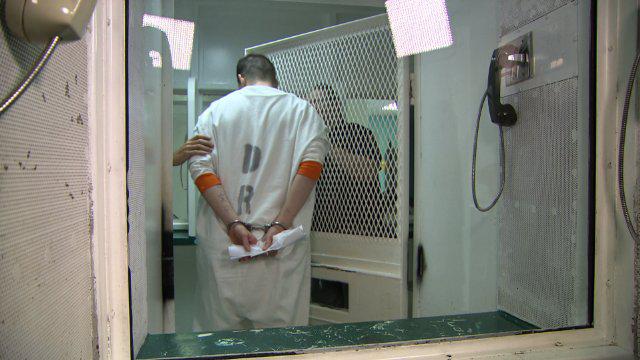Werner Herzog’s latest documentary, Into the Abyss, is a harrowing look at the aftermath of a 2001 triple homicide in Conroe, TX. Herzog interviewed the two men convicted of the murders—Michael Perry, who was executed last year for the crime, and Jason Burkett, who received only a life sentence—along with the victims’ families, a prison chaplain, a former executioner, and the convicts’ friends, families, and acquaintances. Together, the interviews evoke the arbitrariness of death, the senseless nature of violence and poverty, and the complicated underpinnings of society’s most frightening problems.
Herzog is a notoriously liberal editor, and—like any storyteller—he had to select carefully when deciding which facts to focus on in Into the Abyss. One of the facts he omitted, however, seems arguably quite relevant to the case. In a recent interview for The Boston Phoenix, Herzog breezily told film editor Peter Keough, “Actually, what the film doesn’t mention is in the second round of murders there was witness [sic] there who testified who got immunity.”
That witness, according to a court transcript of Perry’s confession (later recanted), was Burkett’s then-girlfriend, Kristen Willis. Burkett and Perry drove Willis’s truck to Sandra Stotler’s house on the night that they killed her, and, after disposing of the body in a nearby lake, they picked Willis up from the sports apparel shop where she worked and returned to the Stotlers’ subdivision. It was there that Burkett, Perry, and Willis intercepted their victim’s son and his friend, and convinced the two boys to follow them into the woods. Willis sat in her truck while Perry and Burkett committed their second and third murders. When the killers reemerged from the forest, Willis—per Perry’s confession—asked Burkett, “What happened?” Then, before he could answer, she said, “Never mind; I don’t want to know.”
In 2006, Burkett told an interviewer that he thought the local government had protected Willis after the murders because “her father has been a Montgomery County Sheriff for as long as I could remember.” And Perry, after recanting his confession to the murder of Sandra Stotler, allegedly posted a message on a website set up to raise awareness of his case indirectly accusing Willis of the murders. (If there ever was a message, it has since been removed.)
Herzog—and the court documents—leave little doubt that Perry and Burkett were indeed guilty of the crimes for which they were convicted. But why did Herzog leave Kristen Willis out of Into the Abyss? Did she refuse to be interviewed? Did she threaten legal action against Herzog if he implied that she might have been involved in the murders? Or is it just that her presence at the scene of the crime didn’t fit into the narrative Herzog wanted to tell about the murders? A love interest with ties to local law enforcement might not jibe with Herzog’s portrait of two neglected, alienated young killers.
An exchange that came later during the Boston Phoenix interview might shed some light on the answer. In response to a question about some compelling evidence that Burkett had white-supremacist sympathies, Herzog replies, “He denies it, and that’s why the film doesn’t make any fuss over it.” Whatever Herzog’s reasons for leaving the existence of a key witness out of Into the Abyss, it’s clear—as it always has been—that Herzog is an artist, not a journalist.
What Facts Did Werner Herzog Leave Out of Into the Abyss and Why?

© 2011 - IFC Films
Advertisement